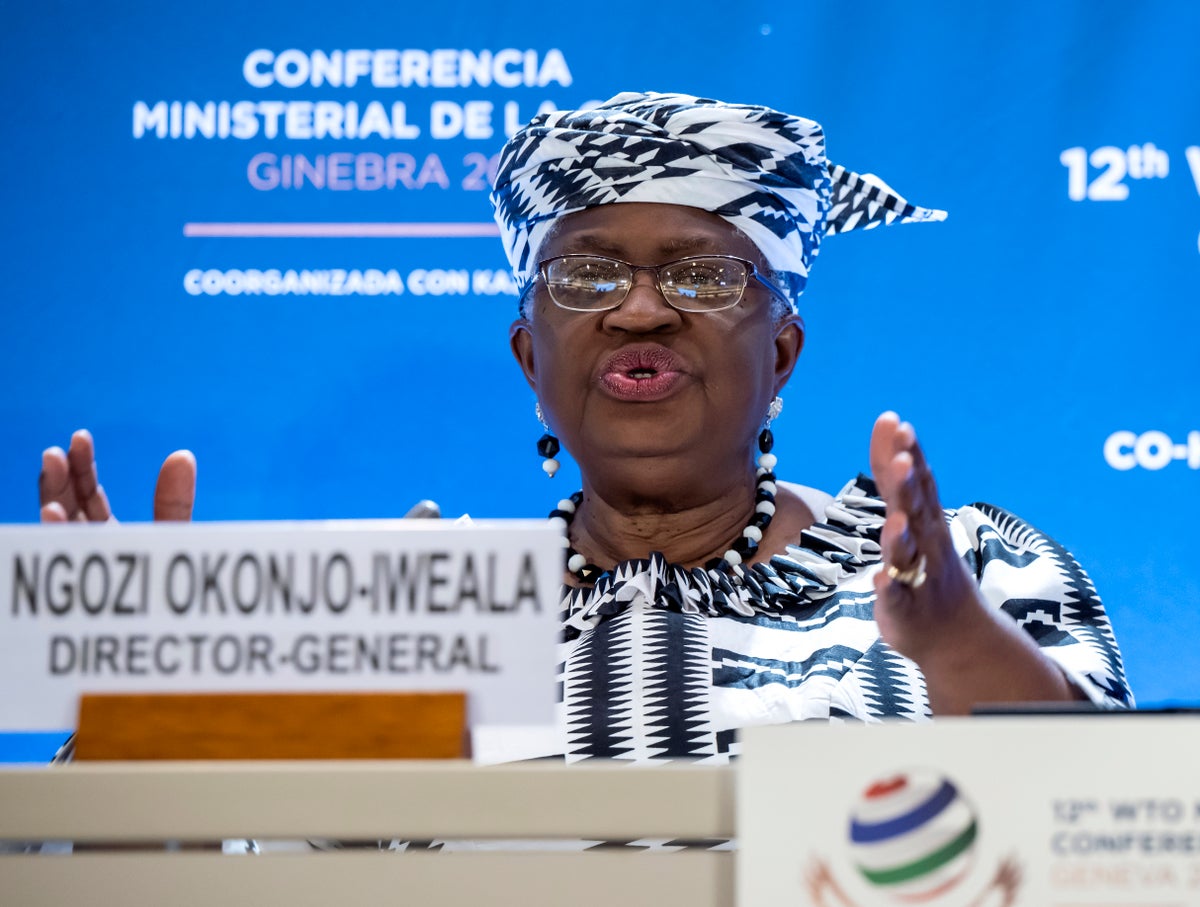
Talks went down to the wire Thursday as the World Trade Organization was set to wrap up its first ministerial-level meeting in more than four years, with no firm deal so far on issues like food security, the fight against overfishing in the seas, and efforts to broaden access to COVID-19 vaccines.
Western diplomats were pointing fingers at India's delegation in particular, accusing it of blocking agreement on issues like a waiver of WTO rules that protect patents behind COVID-19 vaccines and a bid to reduce government subsidies that help industrial-sized fishing operations that scoop up huge catches, while protecting the livelihoods of small-scale fishermen.
India was holding its ground, positioning itself as a leading voice for developing countries that have resisted what they perceive as high-handed demands by Western powers trying to protect the diversity of ocean wildlife and the innovations of their lucrative pharmaceutical industries.
As the deadline for the talks neared, a Geneva-based trade official said Indian Commerce Minister Piyush Goyal “has been very much involved in trying to reach compromise.” The official spoke on condition of anonymity because he was not authorized to provide details from the closed-door discussions.
Ambitions to strike deals at the WTO are, in many ways, a victim of the organization's own structure: the 164-member trade body operates by consensus, meaning every single country has to sign off on decisions or at least not get in the way. The United States, in particular, has singlehandedly blocked appointments to the WTO's appeals court, which aims to mediate trade disputes.
The four-day meeting that opened Sunday was extended by a day to give negotiators a final chance to strike at least one consequential deal. It would be the first in years.
India has been a crucial participant in talks over the “IP Waiver” on COVID-19 vaccine protections — along with South Africa — which ran afoul of many wealthy countries. WTO Director-General Ngozi Okonjo-Iweala set up talks with the U.S. and European Union to work on a compromise text.
Many activist groups oppose the proposed changes, saying they don't go far enough to help fight a once-in-a-century pandemic or prepare for the next one. Big Pharma has resisted any changes that could dilute protections for its innovations.
Envoys also took up declarations showing support for the World Food Program in times of growing food insecurity as Russia's war in Ukraine has choked off exports of wheat and other food staples from its fields.
The draft text on fisheries aims to limit government subsidies — such as for fuel — to fishing boats or workers who take part in “illegal, unreported and unreported” fishing or national subsidies that contribute to “overcapacity or overfishing.” Some in developing countries could qualify for exemptions. Talks on the issue have been going on at the WTO for the last two decades.







